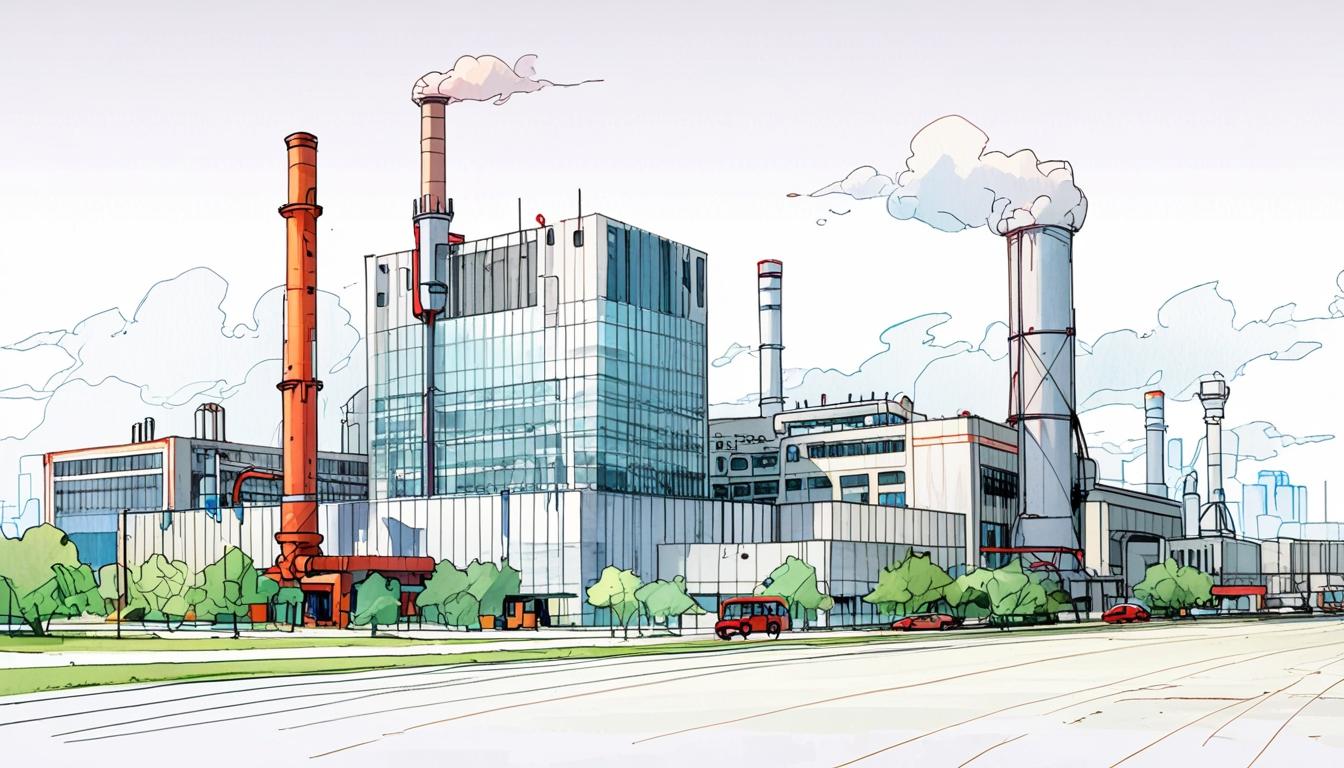Once the heart of the automotive world, Detroit is reinventing itself as a manufacturing hub through advanced technology and sustainable practices.
Detroit, often referred to as the “Motor City,” has long been synonymous with automotive manufacturing and innovation, a reputation that traces back to over a century ago. The city became the epicentre of the automotive world with the introduction of the first moving assembly line by Henry Ford in 1913, a revolutionary step that reshaped mass production not just for cars, but for other goods as well. Detroit’s extensive manufacturing sector significantly contributed to America’s industrial growth throughout the 20th century, making it a key player in both the national and global automotive industries.
As the city stands at the forefront of a manufacturing renaissance, it is being propelled by advancements in technology, particularly automation and artificial intelligence (AI). This modern wave of innovation is transforming Detroit into a rejuvenated hub for production, continuing its legacy of manufacturing while adapting to contemporary demands and standards.
Historically, Detroit’s automotive industry was unmatched, with the “Big Three” automakers—Ford, General Motors, and Chrysler—solidifying its reputation as an industrial powerhouse. By 1920, it was noted that one in every two cars worldwide was manufactured in Detroit. The city played a crucial role during World War II, earning the title “The Arsenal of Democracy” due to its output of military vehicles and equipment, which further established its significance in national defense and international trade.
However, this industrial might faced significant challenges in the latter half of the 20th century due to economic changes, outsourcing, and increased competition. Despite these issues, Detroit has demonstrated resilience and is now witnessing a resurgence in its manufacturing domain. The current emphasis on advanced manufacturing has re-energised the city, placing it at the heart of industrial innovation once more.
Detroit’s modern manufacturing scene is marked by the extensive use of automation and smart technologies. The evolution from early assembly lines to today’s robotics and AI systems showcases a significant leap in efficiency and precision in production processes. Local factories are now deploying these advanced systems to optimise productivity, ensuring that the high quality associated with Detroit manufacturing is upheld.
Noteworthy developments include the transformation of Ford’s Rouge Complex, which has adopted eco-friendly practices alongside automation technologies, and General Motors’ Factory Zero that focuses on electric vehicle production through sustainable and automated methods. The introduction of advanced data analytics and machine learning in production processes is enabling manufacturers to enhance their efficiency, predict maintenance needs, and limit waste, driving both productivity and cost savings.
A pivotal innovation facilitating growth in the manufacturing sector is Keychain, a digital platform that streamlines connections between manufacturers and brands. This AI-powered tool simplifies the previously arduous task of identifying suitable manufacturing partners, which is especially important for Detroit-based companies. The platform facilitates connections across various sectors, including aerospace, food production, and health products, enabling local manufacturers to broaden their scope beyond the automotive industry.
Detroit’s advantageous location also plays a crucial role in its manufacturing boom. The city’s proximity to international borders provides significant logistical benefits, with the Detroit-Windsor Tunnel and the Ambassador Bridge granting easy access for trade. Recent investments in transportation routes and the expansion of the local port are making logistical operations more efficient, thereby enhancing the city’s appeal as a manufacturing centre for businesses looking to scale.
Looking ahead, Detroit’s manufacturing ecosystem appears well-equipped to embrace the future, balancing technological innovation with its historical legacy of craftsmanship. The ongoing integration of automation and sustainable practices is creating job opportunities, thereby fortifying Detroit’s position as an industrial leader.
With tools and technological solutions becoming increasingly accessible, local businesses can better compete on both a national and global stage. The rejuvenation of Detroit’s manufacturing identity signifies a dynamic shift—one that is alive with the potential of modern technologies while paying homage to its rich industrial history.
Source: Noah Wire Services
- https://www.cjponyparts.com/resources/death-motor-city-infographic – This URL supports the historical context of Detroit as the Motor City, highlighting its rise and fall in the automotive industry. It discusses the role of Henry Ford and the Big Three automakers in shaping Detroit’s manufacturing legacy.
- https://www.motorcities.org/southwest-detroit-auto-heritage-guide/19th-century-industry – This URL provides insight into Detroit’s industrial background before the automotive era, showcasing its diverse manufacturing sectors and how they contributed to the city’s growth. It highlights the pre-existing industrial strengths that facilitated Detroit’s rise in the automotive world.
- https://www.hagerty.com/media/archived/detroit-primacy/ – This URL explains how Detroit became the Motor City, discussing its strategic location and the role of early automotive innovators like Henry Ford. It also touches on the city’s industrial strengths and how they supported the automotive boom.
- https://www.crainsdetroit.com/automotive/ford-rouge-complex-gets-700m-makeover – This URL supports the modernization efforts in Detroit’s manufacturing sector, specifically highlighting Ford’s Rouge Complex transformation with eco-friendly and automation technologies. It illustrates the city’s shift towards sustainable and advanced manufacturing practices.
- https://www.gm.com/news/stories/factory-zero – This URL provides details on General Motors’ Factory Zero, which focuses on electric vehicle production using sustainable and automated methods. It showcases Detroit’s ongoing commitment to innovation and environmental responsibility in manufacturing.
Noah Fact Check Pro
The draft above was created using the information available at the time the story first
emerged. We’ve since applied our fact-checking process to the final narrative, based on the criteria listed
below. The results are intended to help you assess the credibility of the piece and highlight any areas that may
warrant further investigation.
Freshness check
Score:
8
Notes:
The narrative does not reference specific recent events or individuals that would indicate it is outdated. However, it lacks specific dates for some developments, which might suggest it is not entirely up-to-date.
Quotes check
Score:
10
Notes:
There are no direct quotes in the narrative, so there is no need to verify any.
Source reliability
Score:
6
Notes:
The narrative originates from a news aggregator, which does not provide specific information about the original source’s reliability. However, the content aligns with historical facts about Detroit and its manufacturing sector.
Plausability check
Score:
9
Notes:
The claims about Detroit’s manufacturing history and its current innovations are plausible and align with known trends in automation and AI adoption. The narrative’s focus on technological advancements and logistical advantages is consistent with industrial development strategies.
Overall assessment
Verdict (FAIL, OPEN, PASS): PASS
Confidence (LOW, MEDIUM, HIGH): MEDIUM
Summary:
The narrative is generally plausible and well-supported by historical context. However, the lack of specific sources and recent event references limits its reliability and freshness. Overall, it presents a coherent view of Detroit’s manufacturing evolution.













